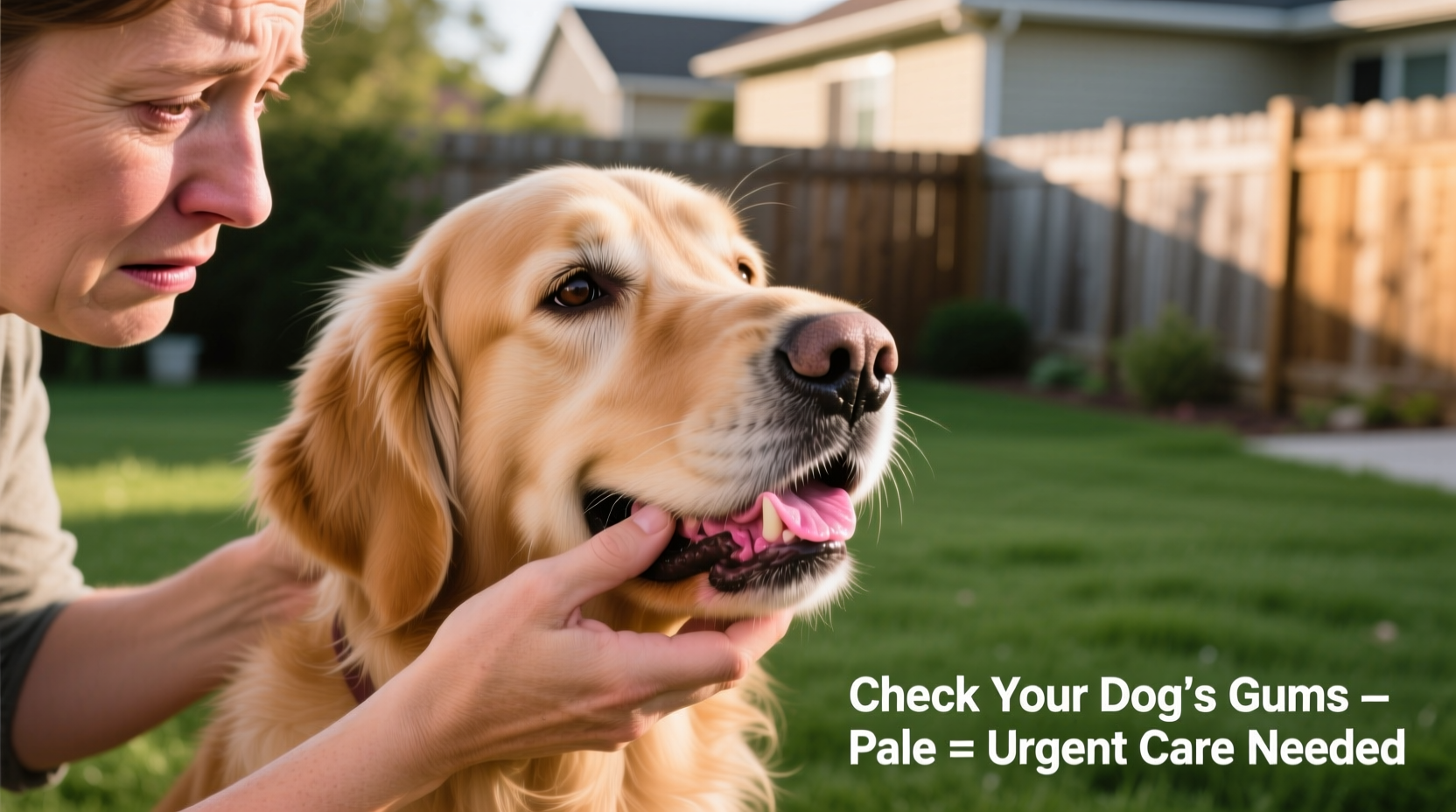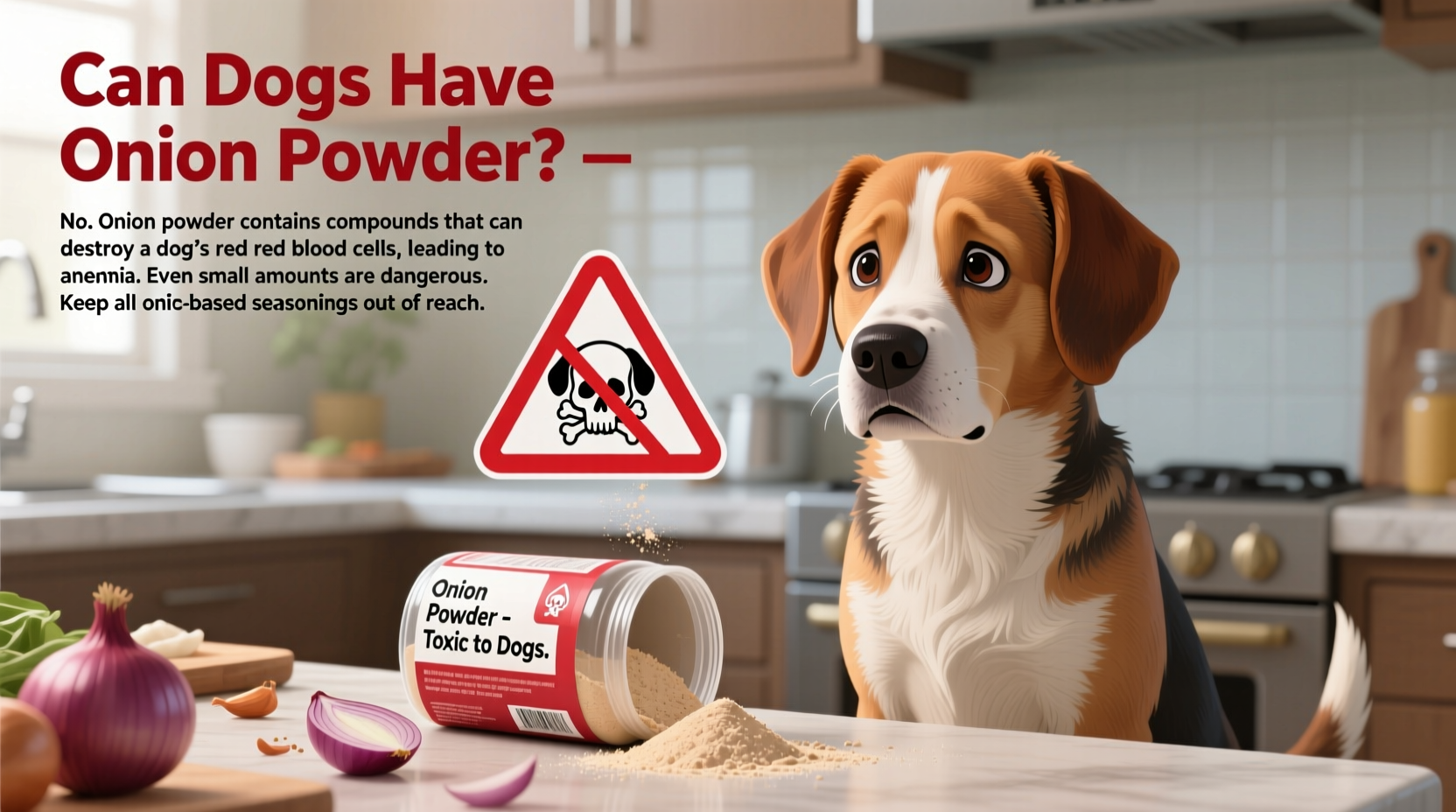Why Onion Powder Poses a Serious Threat to Dogs
Unlike humans, dogs lack the enzyme system to properly metabolize compounds found in the Allium family, which includes onions, garlic, leeks, and chives. Onion powder concentrates these dangerous compounds, making it significantly more hazardous than fresh onions.
According to the American Veterinary Medical Association, processed onion products like powders contain 5-10 times higher concentrations of N-propyl disulfide than fresh onions. This toxic compound oxidizes hemoglobin in red blood cells, causing Heinz body formation and eventual cell rupture.
| Onion Form | Toxicity Level | Danger Threshold (per 20lb dog) |
|---|---|---|
| Fresh onion | Moderate | 50-100g |
| Onion powder | Extreme | 5-10g |
| Garlic powder | High | 15-30g |
| Onion soup mix | Extreme | 1-2 tsp |
Symptoms Timeline: What to Watch For After Exposure
Onion toxicity doesn't produce immediate symptoms, which makes it particularly dangerous. The destruction of red blood cells happens gradually over days. Understanding this progression helps pet owners recognize problems before they become critical:
- 0-24 hours: Vomiting, diarrhea, decreased appetite, abdominal pain
- 24-72 hours: Lethargy, weakness, rapid breathing, pale gums
- 3-5 days: Dark urine (hemoglobinuria), jaundice, collapse
- 5+ days: Severe anemia requiring blood transfusion
The ASPCA Animal Poison Control Center reports that symptoms typically appear within 1-3 days after ingestion, but can be delayed up to 5 days depending on the amount consumed and the dog's individual sensitivity.

Breed-Specific Vulnerabilities and Risk Factors
While all dogs are susceptible to onion toxicity, certain breeds face higher risks:
- Japanese breeds: Shiba Inus and Akita Inus have naturally lower levels of the enzyme needed to process onion compounds
- Small breeds: Toy poodles, Chihuahuas, and Yorkshire Terriers reach toxic thresholds with smaller amounts
- Dogs with pre-existing conditions: Those with kidney disease or anemia face compounded risks
According to veterinary toxicology research published in the Journal of Veterinary Pharmacology and Therapeutics, dogs with pre-existing hemolytic conditions can experience severe reactions from amounts considered sub-toxic for healthy dogs.
Immediate Action Plan: What to Do If Your Dog Ingested Onion Powder
If you suspect your dog consumed onion powder, follow these critical steps:
- Calculate exposure: Estimate how much onion powder was consumed (check packaging for measurements)
- Contact professionals: Call your veterinarian or animal poison control immediately (Pet Poison Helpline: 800-213-6680)
- Do NOT induce vomiting unless specifically instructed by a professional
- Preserve evidence: Save packaging or remaining product for identification
- Monitor closely: Watch for early symptoms while waiting for professional guidance
Veterinary treatment may include intravenous fluids, oxygen therapy, blood transfusions, and medications to support red blood cell production. Early intervention significantly improves outcomes.
Safe Flavor Alternatives for Homemade Dog Treats
Many pet owners want to enhance their dog's food with flavorful ingredients. These safe alternatives provide tasty options without the risks:
- Parsley: Fresh, chopped parsley freshens breath and provides vitamins
- Basil: Mild anti-inflammatory properties with a pleasant aroma
- Cinnamon: Small amounts may help regulate blood sugar (¼ tsp max for medium dogs)
- Pumpkin: Pure canned pumpkin adds fiber and flavor
- Blueberries: Antioxidant-rich treat that most dogs love
When preparing homemade dog food or treats, always consult with your veterinarian about appropriate ingredients and proportions for your dog's specific health needs.
Preventing Accidental Onion Powder Exposure
Many dog owners don't realize how commonly onion powder appears in household products:
- Check labels on baby food (some meat varieties contain onion powder)
- Examine commercial dog treats and foods for hidden onion derivatives
- Store human food containing onion powder securely away from pets
- Be cautious with food scraps - many contain hidden onion powder
- Educate family members about the dangers of sharing human food with dogs
The Pet Poison Helpline reports that accidental onion poisoning often occurs when well-meaning owners share table scraps without realizing they contain processed onion products.











 浙公网安备
33010002000092号
浙公网安备
33010002000092号 浙B2-20120091-4
浙B2-20120091-4